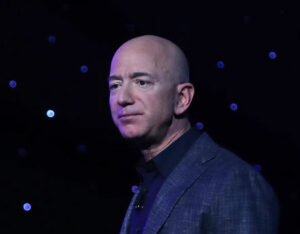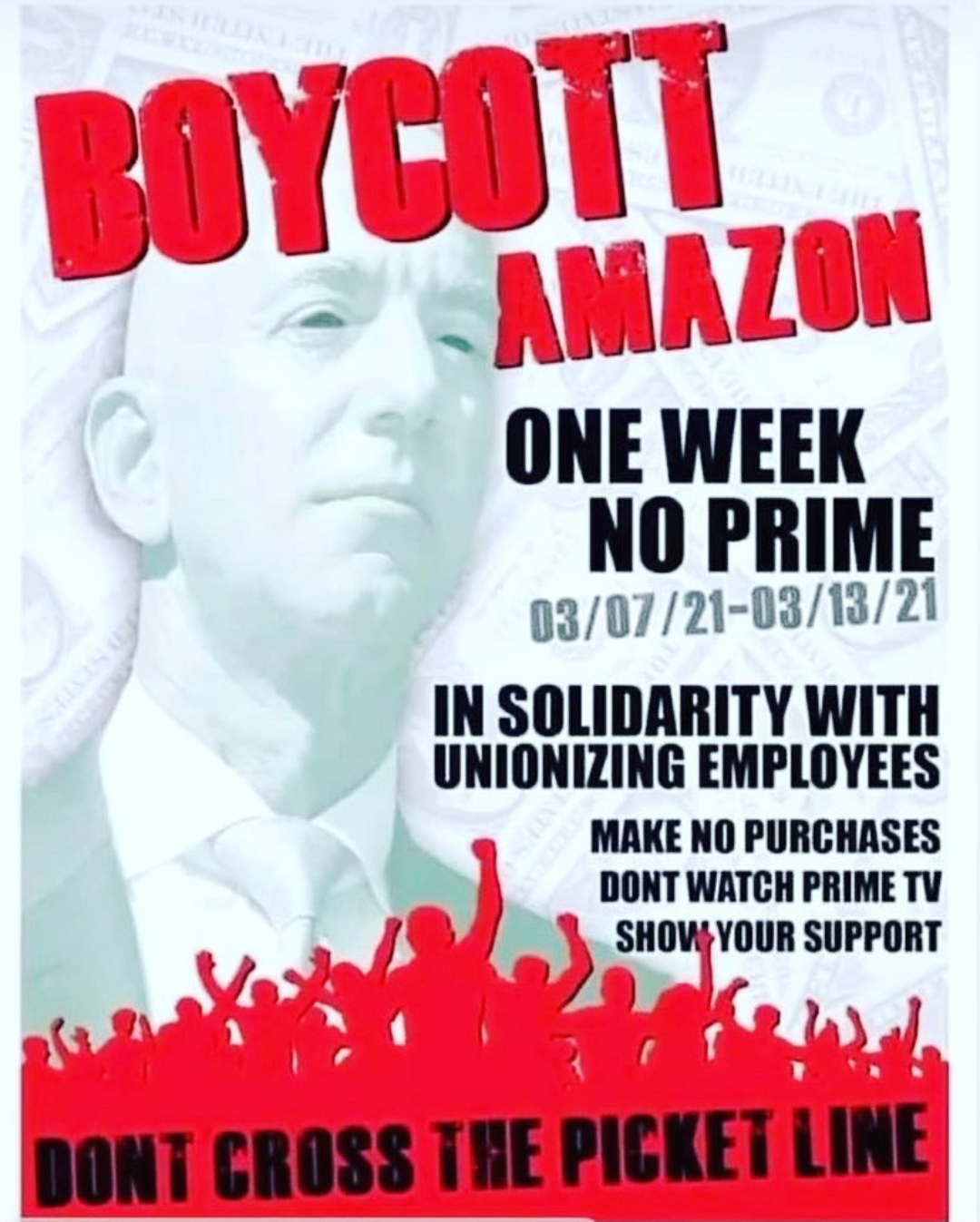How is your boycott of Amazon going? I didn’t realize I viewed Amazon so much until I made a conscious effort to avoid it and always use the alternatives I listed in Boycott Amazon Week. If you are looking for a tad more incentive to keep this side of the picket line read this:
Jeff Bezos’s Vision of the Future Is Basically Blade Runner

It’s by Paris Marx and published on the Jacobinmag site. What a combo of names. The names alone inspire action — or inaction to avoid Amazon in solidarity with Amazon’s workers.
In May, Jeff Bezos unveiled his long-term vision for humanity’s future. During an hour-long presentation in Washington, DC, the Amazon billionaire described how humans will need to leave Earth if we’re to maintain “growth and dynamism” in the future.
For Bezos, our future is a series of free-floating space colonies called O’Neill cylinders in close proximity to Earth. This proximity, he argues, will help the planet to avoid exceeding its capacity as the population swells into the trillions. Such a development, argues Bezos, will allow us to produce thousands of “Mozarts and Einsteins.” But what about everyone else?
The richest man in the world with an intent to “save the Earth,” Bezos has claimed that space travel is “the only way” he can see to effectively deploy his enormous wealth — a statement he saw fit to make while simultaneously working to defeat a small tax increase in Seattle that would have bolstered programs to help the city’s soaring homeless population.
The quest for space habitats is essential, Bezos argues, because we’re destroying the planet. He says this as he nonetheless courts the oil and gas industry. Amazon workers have demanded their boss take stronger measures to address the company’s environmental footprint, but even his renewed pledge doesn’t go far enough. Its inaction is of course motivated by the logic of profit maximization — at the expense of planetary destruction. This is the same imperative that has driven Bezos to look to the stars.
Bezos is convinced that humanity will fall prey to “stasis and rationing” if we remain on Earth. The Jeff Bezos brand of never-ending growth will require constant population gains, increased energy use, and more resources than our planet can provide — so, into the stars we must go.
As is so often the case with the analyses of billionaires, a lot gets left out of the picture. The utopian future put forward by Bezos has blind spots so big you could pilot a starship through them. When they’re filled in, Bezos looks a lot more like Niander Wallace, the replicant manufacturer in Blade Runner 2049, than the savior he thinks himself to be. . . .
The article is studded with sub-headings like Hero Complex, Sci-Fi Glimpses of an Unequal Future, Disposable Humans in a Billionaire’s World.
Paris Marx wrote another warning about Bezos in 2019. It begins:
Imagine, for a moment, that you’re a billionaire who’s read science fiction your whole life. Your mind, deluded by your immense wealth, thinks that the only way to “deploy this much financial resource” is to invest in space instead of paying taxes so we can collectively solve the problems on Earth. When a fictional television show about space colonization is canceled in its third season, you swoop in to save the day because not only do you fund a space company, but you also own a massive streaming platform — and it needs content. After chatting with some of the cast, you email your team asking to announce the show’s renewal, and — ten minutes after they reply — you take the stage and are lauded by sci-fi fans across the internet for saving the day.
This is exactly what happened when The Expanse was canceled by Syfy and quickly scooped up by Amazon Prime Video for a fourth season after a personal intervention by CEO Jeff Bezos. It’s hard to imagine having so much money that you could both fund a space race and the media that could inspire it all at the same time, but that’s exactly what he’s doing.


